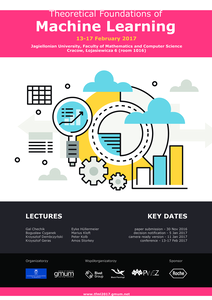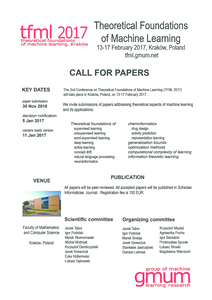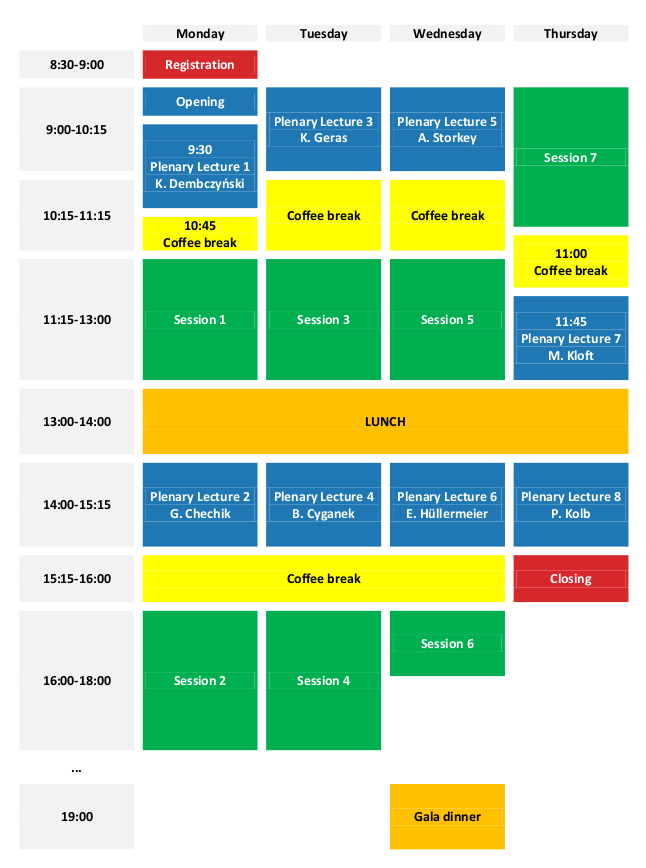Following papers have been accepted for Journal Track of our conference:
Katarzyna Janocha , Wojciech Marian Czarnecki, On Loss Functions for Deep Networks in Classification
Agnieszka Nowak - Brzezińska, Tomasz Rybotycki Impact of clustering parameters on the efficiency of knowledge mining process in rule-based knowledge bases
Grzegorz Jurdziński Word embeddings for morphologically complex languages
Igor Sieradzki, Stanisław Jastrzębski On certain limitations of Recursive Representation model
Sarunas Raudys, Aistis Raudys, Zidrina Pabarskaite, Gene Biziuleviciene Portfolio inputs selection from imprecise training data
Ameur Douib, David Langlois, Kamel Smaili A Translation Evaluation Function based on Neural Network
Mirosław Kordos Data Selection For Neural Networks
Grzegorz Surówka Search for resolution invariant wavelet features of melanoma learned by a limited ANN classifier
Krzysztof Adamiak, Krzysztof Ślot Misclassification-Driven Sample Relabeling for Supervised Kernel Principal Component Analysis
Łukasz Struski, Marek Śmieja, Bartosz Zieliński, Jacek Tabor Regression SVM for incomplete data
Bartosz Sądel, Bartłomiej Śnieżyński Online supervised learning approach for machine scheduling
Maciej Brzeski, Przemysław Spurek Uniform Cross-entropy clustering
Jacek Klimaszewski, Marcin Korzeń Optimization of l^p-regularized Linear Models via Coordinate Descent
Magdalena Wiercioch Towards Learning Word Representation
Kalina Jasińska, Krzysztof Dembczyński, Nikos Karampatziakis Extreme classification under limited space and time budget
Vitalik Melnikov, Pritha Gupta, Bernd Frick, Daniel Kaimann, Eyke Hüllermeier Pairwise versus Pointwise Ranking: A Case Study
Following talks have been accepted for Latebreaking track:
(TFML 2017) will take place in Kraków, Poland, on February 13-17, 2017.
We invite submissions of papers addressing theoretical aspects of machine learning and related topics. We strongly support a broad definition of learning theory, including, but not limited to:
Conference is organized by Department of Machine Learning, Institute of Computer Science and Computational Mathematics, Faculty of Mathematics and Computer Science, Jagiellonian University.
The conference will take place at Jagiellonian University, at the Faculty of Mathematics and Computer Science, Cracow, Łojasiewicza 6, room 1016.


 All papers will be peer-reviewed. All accepted papers will be published in Schedae Informaticae Journal1. At least one author of each publication has to attend the conference and present it during oral/poster session.
All papers will be peer-reviewed. All accepted papers will be published in Schedae Informaticae Journal1. At least one author of each publication has to attend the conference and present it during oral/poster session.



